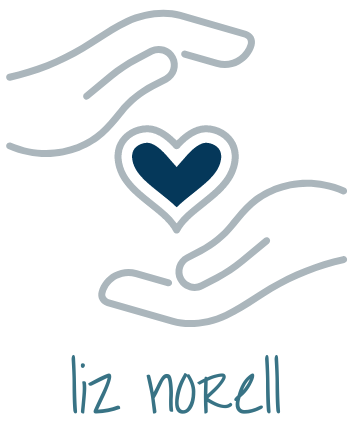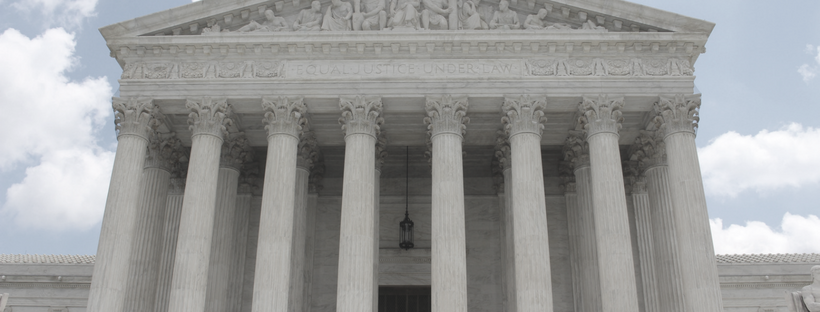Background: Last week, I gave a short introduction to Bryan Stevenson’s book Just Mercy for a group of new honors students at Chattanooga State (where I teach), and the remarks I gave really hit their mark uncommonly well. So, I thought I’d share. Although I don’t talk from a script, I captured my remarks soon after they were delivered, to be as faithful as possible.
When someone in today’s time wants to draw your attention to a particular phrase in the Pledge of Allegiance, it’s usually for a phrase that appears midway through. Today, though, I’d like to direct your attention to the final six words of the Pledge:
with liberty and justice for all
Liberty.
Justice.
For all.
Maybe you hear those words as a commitment to principles at the core of what this country means to you.
But perhaps, you hear them with the realization that, at least right now, they represent an aspiration that we aren’t quite reaching just yet.
This is what lies at the core of Bryan Stevenson’s book Just Mercy. And I’m going to be very honest with you … this book is hard. I hope to convince you today why this book matters to us. I’m also going to share with you some tips on how to take care of yourself while reading it. And it occurs to me that maybe you’ve never had to think about how to ‘take care of yourself while reading’ a book.
I promise I won’t read large chunks of this book to you, but I do want to share with you two powerful passages from the introduction to the book. You all have your books with you, so feel free to turn to page 14 with me if you like. Stevenson is here talking about his grandmother, who frequently said to him:
You can’t understand most of the important things from a distance, Bryan. You have to get close.
She was right. It’s hard to understand from a distance. It’s much easier to nurture resentments and reduce complexity to simple answers from afar. When we get close, we see the humanity of others.
On page 18, Stevenson provides what I see as the central message of this book:
We are all implicated when we allow other people to be mistreated. An absence of compassion can corrupt the decency of a community, a state, a nation. Fear and anger can make us vindictive and abusive, unjust and unfair, until we all suffer from the absence of mercy and we condemn ourselves as much as we victimize others.
…
I especially love what he says about how an absence of mercy condemns us as well as victimizing others. Think about how you experience hatred. Hopefully, you don’t experience it often, but we all are vulnerable to feeling that surge of rage when someone cuts you off in traffic. At that moment, who is your rage really hurting? Is it honestly hurting — or affecting, AT ALL — the person who cut you off? No. Anger hurts us, not the objects of our anger. It disconnects us from others. It puts up a wall between us.
This book demands that we look at difficult lives up close. It forces us to grapple with issues that make us question who we are … as people, and as a country.
You may read this book and think, ‘Wow. I can’t believe someone else understands the struggles I’ve faced in my life.’ You might read it and think, ‘Pfffft. This is bullshit.’
Either way, though, you’re going to spend some time getting close to people whose lives have been thrown into chaos by the anger of others. You’re going to feel a lot of things as you read this book.
This book is hard to read.
This book is harder to live.
…
As you read Just Mercy, and especially if you come with us on our Civil Rights Trail tour next March, you’re going to be hit with feelings, and most of us will feel that protective instinct to hide the feelings. I want to encourage you NOT to follow that impulse. Our feelings — of anger, of sadness, of horror, of hope — those feelings are what make us uniquely human. You might cry … and those tears will show that you have compassion. You might yell, particularly internally … and those shouts will show that you have a sense of justice. You might ache … and that hurt will show that you have a heart. I wouldn’t want any of you to lose your compassion, your sense of justice, or your heart, and I don’t want any of you to be afraid to share those feelings with one another.
Over the summer, I had a class of about 20 students who read this book, and I wouldn’t be surprised to learn that that spawned the sale of another 100 copies of the book, because they all talked to their parents, friends, family members, and basically everyone around them about the experience of reading it. Look around you. These are the people who will be able to understand what it’s like to read this book. Don’t be afraid to talk to them.
We read this book because it’s important for us to bear witness to the lived experiences of others. We read this book so we can understand what happens in the lives of others. It is a tremendous gift to be able to bear witness, even when what we see hurts. That act, of acknowledging what has been done to others, that’s part of our healing, part of our shared humanity.
In addition to being a political science teacher, I’m also a yoga teacher. In yoga, you’ll sometimes hear people say, “Motion is lotion.” They mean that the more you move, the easier it is to move. As we move our joints, they lubricate themselves. I believe that this principle, motion is lotion, applies to our government as well. Your motion — getting involved, staying informed, participating in our democracy — provides the lotion that makes the wheels of our government move more smoothly. Should you start to feel any despair, hurt, or helplessness as you read this book, come back to those words: Motion is lotion. Do something for someone else. It will grease the wheels of your community for another day.
I look forward to talking with you about what you experience as you read this book, about what resonates with you, about what challenges you, about the feelings you have.
This book is hard.
But it’s necessary.






[…] serve to lessen our humanity as it lessens theirs. I’ll come back, once more, to something Bryan Stevenson writes in Just […]